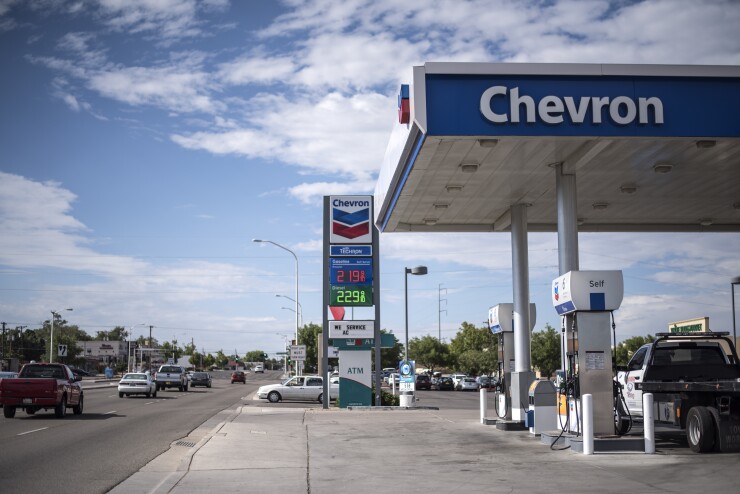The wheels are already turning on one of the biggest fleet card portfolio flips in North America, with South Portland, Maine-based WEX Inc. poised to take over in 2018 as the issuer of
WEX this month said it won a long-term contract to manage fleet card issuing and related payment services for Chevron U.S.A.’s commercial fleets. Chevron was FleetCor’s largest partner in the U.S., but one it can recover from losing, analysts say.
“WEX’s win of the Chevron/Texaco account is a trophy client in the industry, but it will not shatter FleetCor, its prime competitor,” said Brian Riley, a director at Mercator Advisory Service, said.
Minus revenue from payment volume associated with the Chevron portfolio, which supports cards accepted at 8,000 gasoline outlets in North America, FleetCor will have to work harder to drive organic growth from other parts of its operation, Riley said. FleetCor’s $3.5 billion

“The fleet card revenue model runs on the cost of fuel,” Riley said, adding that fleet card issuers often derive their income from a negotiated margin between the retail and wholesale fuel pricing spread, and they also benefit from interchange revenue.
“Lower fuel prices drive down income from both streams,” Riley explained. “While many trucking fleets benefited from a 40%-plus decrease in cost, revenue-sharing models used by some fleet card issuers were impacted by slimmer spreads and lower interchange rebates often shared between fleet card companies and trucking fleets as an incentive for partnerships.”
Tailwinds from relatively lower fuel costs will likely end in 2017, and revenue will return to higher levels, shuffling the factors that contribute to fleet card portfolio profits, Riley said.
A representative from WEX declined to provide comment for this story. FleetCor did not respond to inquiries by deadline.
FleetCor operates workforce lodging services, GPS monitoring for personal cards, trucks and machinery and software tools to manage trucking industry productivity costs through vehicle tracking, route optimization and job dispatching, Riley noted.
“Both FleetCor and WEX have hedged their core products into other vertical markets that show promise for 2017 and beyond,” Riley said.
WEX has been on a bit of a roll. The company recently won a 10-year extension to its contract for





